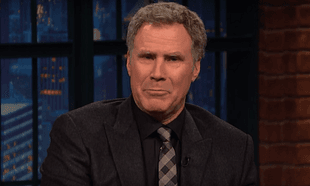On this Monday morning approaching a hard-earned Christmas break (for some), you might have found it very difficult to pull yourself up out of bed.
We all know we're not alone on that front, but when it comes to why we're so tired, there's one common factor, at least according to a recent study that was published in the journal Sleep, which is now our new favourite publication.
According to the study, the main reason most people don't get enough sleep is because of work. The statistics showed that, after surveying 124,517 responses to the American Time Use Survey (ATUS) between 2003-2011, the majority of people who were not getting the minimum amount of hours in bed were giving up sleep so that they could get to work for an early start.
Of those who responded, the group that got the most sleep were the self-employed, who worked flexible times and could afford a few extra minutes here and there. The time you start work also has a big effect on how much you sleep too, with people who clock in between 9am-10am getting an average of 7.29 hours of sleep per night, while those who started before 6am were getting a mere six hours.
There are plenty of reasons that you should be getting the minimum every night, according to American Academy of Sleep Medicine President Dr Timothy Morgenthaler: "getting at least seven hours of nightly sleep is essential to be at your mental, emotional and physical best for whatever you will pour yourself into, either at work or at home."
That's not all, however, as the survey also showed that chronic sleep restricition is not only prevalent among adults (at least in the US) but that it is also "associated with increased morbidity and mortality".
There were other reasons that the survey found we weren't getting enough sleep (time spent traveling to and from work, and activities like socializing, grooming, or watching TV) which were all also related to sleep duration, but the main culprit was work.
For every hour later that people started work, they got about an extra 20 minutes of sleep, and the main recommendation of the report makes pleasant reading for those of us who aren't morning people: "interventions to increase sleep time should concentrate on delaying the morning start time of work and educational activities (or making them more flexible)". They also suggested that we get more opportunities to sleep (again, we're big fans of that) and that there be efforts made to raise awareness of the fact that lack of sleep has an effect on health and safety.
Finally, science comes up with a good reason to tell your boss that you're going to be a few hours late today...
Via Sleep, i100. Main pic via Tom Lin/Flickr








































































